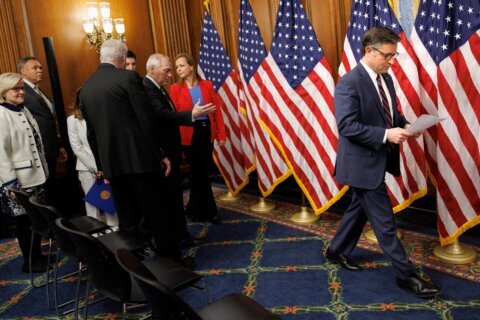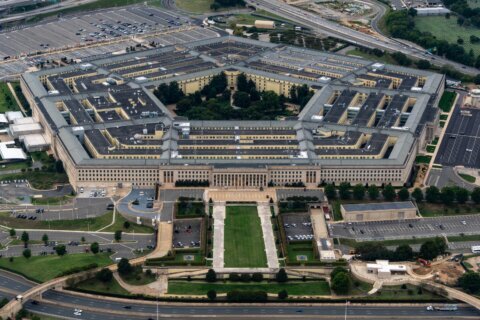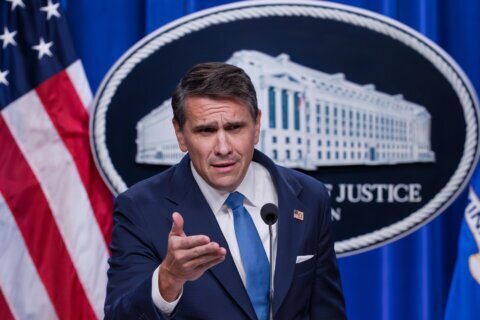The ACLU of D.C. on Wednesday pushed for a federal judge to authorize an appeal allowing the civil rights organization to revive claims against federal officials for the violent clearing of protesters from Lafayette Square on June 1, 2020.
Those claims, which the ACLU says will hold federal officials financially accountable, were dismissed last summer. But because the court’s order did not dismiss the entire case, the plaintiffs need the court’s permission to appeal and filed a motion.
Former Attorney General Bill Barr, who ordered the clearing under then-President Donald Trump, is among those named, as is Trump, Park Police Commander Mark Adamchik and individual officers the ACLU said it has identified.
The plaintiffs include Black Lives Matter D.C. and individuals who attended the protests.
“We are seeking the court’s permission to appeal the decision dismissing the constitutional claims for damages against the federal officers who violently and without provocation cleared civil rights protesters from Lafayette Square,” Scott Michelman, legal director for the ACLU of D.C., told WTOP.
“Last week, we settled other claims in the case with the Biden administration for policy changes by the Park Police and Secret Service. But we think it’s equally important that the perpetrators of the violence be held accountable directly.”
The ACLU of D.C. is seeking damages. Michelman didn’t give a dollar figure for monetary relief, saying that the group wants “an amount to be determined by a jury.”
“And if the constitutional claims are revived, we’ll also be seeking to litigate a class action,” he said, “That is, a claim on behalf of all the demonstrators who were there and injured, not just the individuals we represent. Because we think everyone who was attacked deserves compensation for the blatant violation of their constitutional rights.”
Demonstrators at Lafayette Park had been protesting the death of George Floyd, who died after a then-Minneapolis police officer knelt on his neck and pinned him to the ground for about nine and a half minutes.
The park was forcefully cleared minutes before a curfew imposed by D.C. Mayor Muriel Bowser. Soon after that, Trump walked with other administration officials across Lafayette Square to St. John’s Episcopal Church, where he posed for pictures with a Bible.
Lawyers for Barr, the Park Police and other defendants have said federal officials can’t be sued for damages for constitutional violations that occur near the White House.
Michelman disagrees.
“We think it cannot be the case that federal constitutional rights can be violated and no remedy is available,” the legal director said.
“Damages are a traditional historical remedy for the violation of someone’s rights, including their constitutional rights. And in this particular case, we think this is a well-established remedy going back to the 1970s. … The D.C. Court of Appeals has recognized when protesters in the District are mistreated and their constitutional rights violated, even at the seat of a branch of government like Congress or the White House, they can still obtain redress for their constitutional violations that they’ve experienced.”
Michelman said the decision to dismiss the constitutional claims was wrong, and that his organization looks forward to “hopefully” making that argument to an appeals court.
“If we treat Lafayette Square in front of the White House as a Constitution-free zone and don’t permit people whose rights are violated to enforce them, then effectively, the courts will have shut down that forum as an effective place for people to raise their voice in dissent,” Michelman said.
“The debate we’re having here about the availability of a court action to respond to constitutional violations is really critical to our system of government and the rule of law. If the kinds of violations — blatant, obvious constitutional violations, striking at the core of our First Amendment freedoms that we saw on June 1, 2020 — cannot be redressed, it will encourage officers to violate those rights in the future. And it will chill speech and dissent, particularly on such charged, but critical, issues as racial injustice in the United States.”
More on the ACLU of D.C.’s case is online.
WTOP’s Neal Augenstein and The Associated Press contributed to this report.








